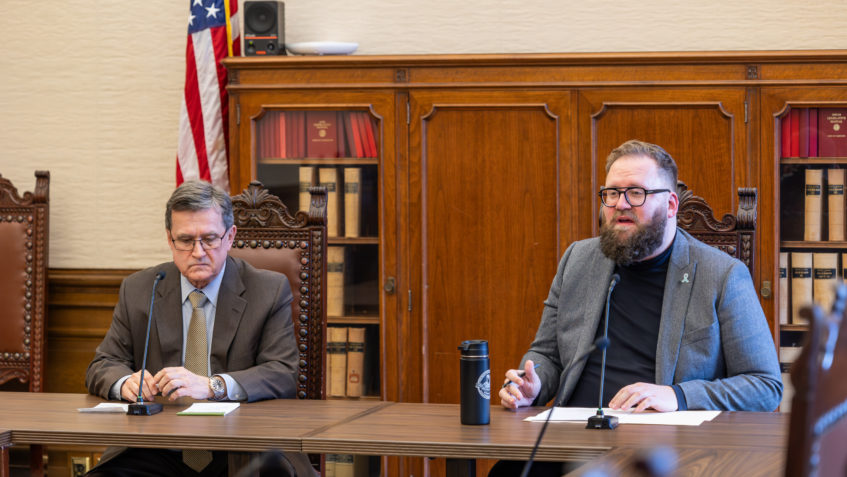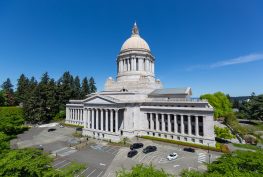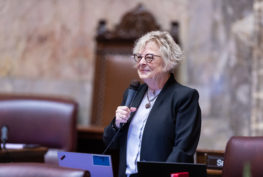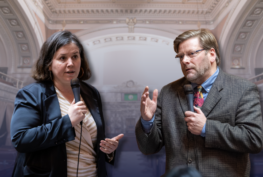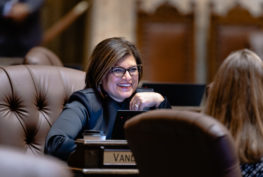OLYMPIA — On Tuesday, Senate Transportation Committee Chair Marko Liias unveiled the 2024 supplemental transportation budget, Senate Bill 5947, a $14.6 billion proposal which prioritizes public safety, preservation and maintenance of existing infrastructure and investments in the ferry system.
“Our transportation system is the lifeblood of our economy, and this year’s budget makes critical investments in ferries, traffic safety, and improving mobility statewide,” Liias (D-Edmonds) said.
The supplemental budget proposal puts $150 million additional dollars into the preservation of roads, bridges and more statewide. An additional $31 million is invested in traffic safety measures, including $13 million for the Washington State Patrol, $5.5 million to combat impaired driving and $1.3 million to help curtail speeding. An additional $150 million is included toward fish barrier removal to help expand the salmon population and restore river ecosystems.
One key focus of the supplemental budget is investment in the ferry system. An additional $261 million – all money from the Climate Commitment Act – goes directly toward efforts to build new ferries and projects related to strengthening Washington’s existing fleet. The bulk of that money goes toward conversions for all five new hybrid electric vessels, with completion of half of those ready sometime during 2027 or 2028.
This budget also invests in the workforce needs of the ferry system, building on $53 million put toward staffing the last two years. There’s an additional $10 million in this supplemental to hire additional crew, as well as funding for additional dispatch and service planning staff. The budget also provides for expanded backup passenger service in King and Kitsap counties and increased training opportunities to address workforce shortages.
The budget continues funding on I-405 and SR 520 and invests $875 million for the I-5 Columbia River Bridge project, which includes a new $600 million federal grant. There is a $52 million cost increase on the SR 520 Seattle Corridor Improvements – West End project. The total increase including later biennia is $770 million. A $140 million sales tax deferral and additional funds from future SR 520 segment tolling assists in accommodating the cost increase. There is $253 million in increased costs for I-405/Brickyard to SR 527. This budget delays three remaining I-405/SR 167 corridor projects by 2-10 years and utilizes the recently approved toll rate increases on I-405/SR 167 to balance funding within the corridor.
“We make important investments and ensure that we don’t go backwards in any area, but the needs of our state continue to outpace the resources available,” Liias said. “I worry that if the initiative passes and the Climate Commitment Act is repealed, we will face devastating cuts right when we can least afford it.”

